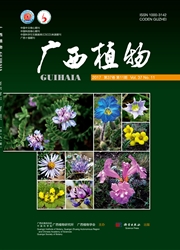

 中文摘要:
中文摘要:
重组人II型肿瘤坏死因子受体-抗体融合蛋白(TNFR-Fc)在治疗系统性自身免疫疾病中有很好的功效。目前TNFR-Fc主要通过动物细胞系生产,高昂的成本限制了其大规模应用。使用水稻种子作为生物反应器有望大幅度降低TNFR-Fc的生产成本,提供优质足量的目标产品。为使TiVFR-Fc基因能够在水稻中高效表达,该研究拟构建经水稻偏好密码优化的TiVFR-Fc基因的种子特异表达载体。通过对水稻和人全基因组密码子使用偏好性进行比较分析并按照水稻最优密码对TNFR-Fc氨基酸序列进行逐一优化,命名为R/TVFRFc,通过全基因合成法制备该基因片段;同时采用PCR法扩增水稻种子特异表达启动子Glu-4,构建种子特异表达启动子驱动的R/7WFR-Fc基因表达载体。结果表明:水稻与人多数氨基酸中密码子使用偏好性较为一致,但在L、S、P、R这4种氨基酸的密码子使用偏好性差异较大,优化时对这些密码子进行逐一替换,优化后30.8%的氨基酸密码子发生了变化;PCR扩增获得种子特异启动子,并连接至pCAMBlA1381载体,同时将全基因合成法制备的R/ZWFR-Fc基因连人该载体,PCR、双酶切验证及测序分析表明载体成功构建。该研究构建的R/ZWFR-Fc基因种子特异表达载体,为在水稻种子中大规模生产TNFR-Fc奠定了基础。
 英文摘要:
英文摘要:
Recombinant human a receptor antibody- protein of tumor necorsis factor Type ll fusion protein (TNFR-Fc) is an effective mean to treat the systemic autoimmune diseases. This protein is currently produced via animal cell lines. The high cost of bioreactor maintenance brings an economic burden for common patients, which largely limits the application of TNFR-Fc. Rice seed offers a good expression system for production of recombinant proteins. To efficiently express TNFR-Fc in rice seed, wre constructed seed-specific expression vector of rice-preferred codon optimized TNFR-Fc (RfTNFR-Fc) , by analyzing the whole genomic difference in codon preference and replacing bases with rice- preferred codons. Rice seed specific promoter Glu-4 was amplified via PCR and ligated into pCAMBlA 1381, followed by the ligation wdth full length synthetic RfTNFR-Fc. The construct wras identified by PCR, double enzyme digestion and sequencing. The preferred codons of L, S, P and R differed between rice and human, though most of the amino acids shared the same preferred codons. In the optimized RfTNFR-Fc, 30.8% of the amino acids changed compared wdth the original version. PCR, double enzyme digestion and sequencing identified that pCAMBlA Glu -RfTNFR-Fc wras successfully constructed. This study lays foundation for the expression of TNFR-Fc in rice seed, further facilitating its commercial production.
 同期刊论文项目
同期刊论文项目
 同项目期刊论文
同项目期刊论文
 期刊信息
期刊信息
